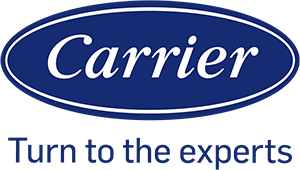For many years, people in colder climates have been told that heat pumps aren’t the ideal solution. But the latest information from the Department of Energy is working to dispel that myth.
Contrary to popular belief, heat pumps can be a practical alternative in places like Michigan, where winters are known to be brutally cold. Research from the U.S. Department of Energy shows heat pumps function more efficiently than their fossil-fuel-powered cousins.
The DOE states that heat pumps are an energy-efficient alternative to furnaces and air conditioners. They can deliver one and a half to three times more heat energy to your home than the electrical energy they consume. This results in up to 300% efficiency.
Energy Efficiency
Even Consumer Reports has chimed in on the heat pump’s ability to heat in colder climates. They have also applauded its ability to shrink your household’s carbon emissions.
According to the nonprofit consumer product testing giant, when properly installed, heat pumps not only keep a home toasty amid bone-chilling cold, they don’t use fossil fuels, which can cost more, but 98% of all homes will reduce their carbon footprint if they install a heat pump.
Some places, like New York State, for example, are considering making their residents use electricity for heating instead of heating oil, propane and natural gas by 2030. The state’s Climate Leadership and Community Protection Act has called for reducing the state’s greenhouse gas emissions by 85% by 2050 and recommending heat pumps is one of the paths toward that goal.
Heat Pump Types
Air source heat pumps use electricity to transfer energy between indoor and outdoor air. Because heat pumps move the heat rather than generate it, they consume less energy. In the summer, the heat pump functions as an air conditioner and moves heat outside of the home.
There are three types of heat pumps on the market:
- The central air source heat pump system. This is installed in homes where there is already a ductwork system.
- Multi-head ductless mini-split systems. This is installed in homes where there is no ductwork or where the owner wants zoned control of individual rooms.
- Single-head ductless mini-split system. This is used in homes where a specific room wasn’t ducted or in detached rooms, like a garage or workspace.
For now, most of us in Michigan still rely on the gas furnace. And, if your home was built before 1978, there might not be an incentive to switch to a heat pump. There are also concerns that switching everyone to a heat pump would stress the current electrical grid.
So, if you’re considering a heat pump as a replacement for your outdated fossil fuel furnace, do your research before making up your mind.
And, if the heating experts at C & C Heating & Air Conditioning can help you consider your options in the Detroit area, give us a call at (586) 439-3319. Our reliable and well-trained technicians can help you make a decision that’s right for your family.





